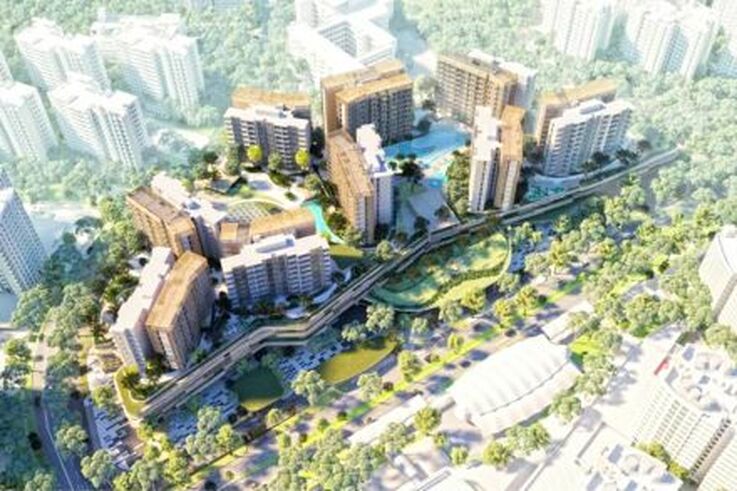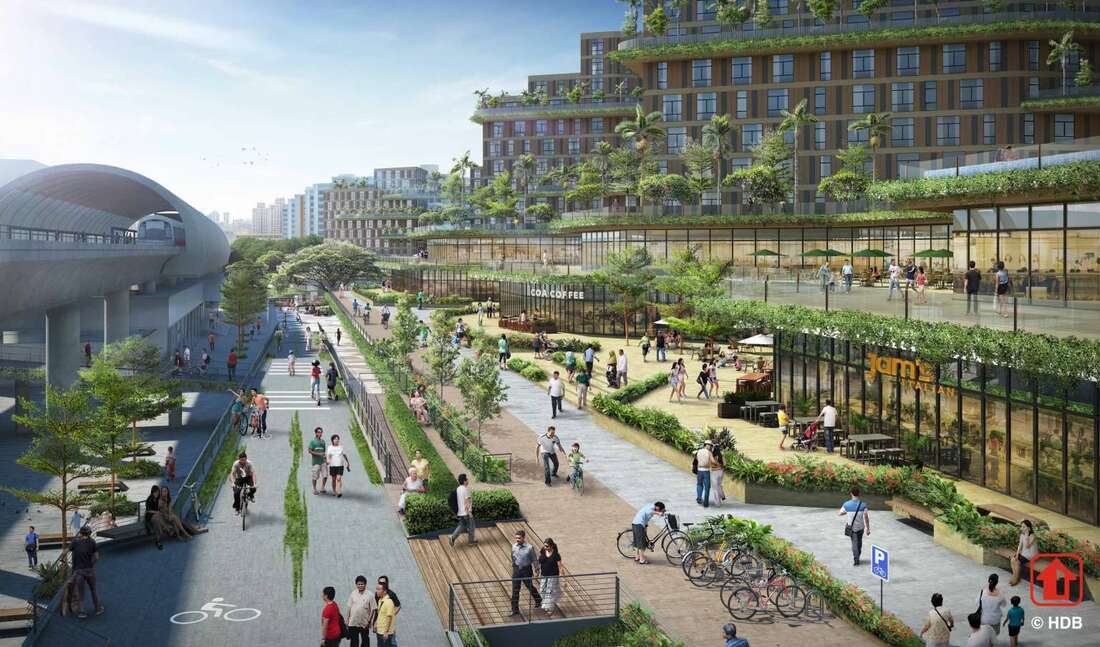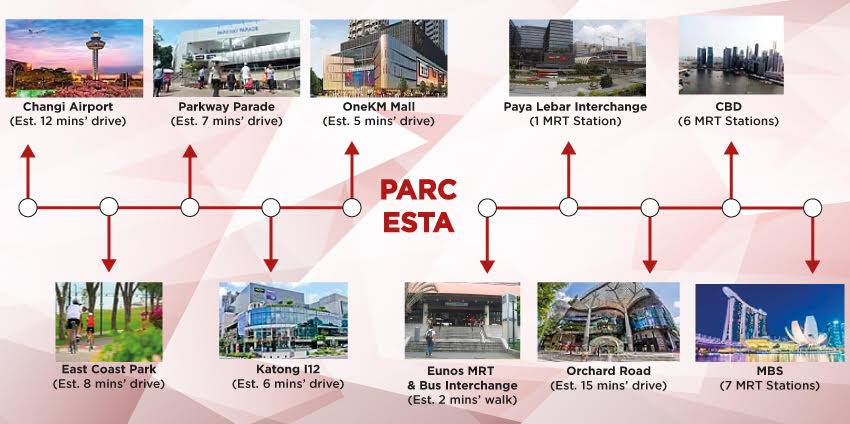Ties between Singapore and China have grown tremendously since they were established in 1990, and there is great potential for them to develop further, Prime Minister Lee Hsien Loong said. He drew attention to China's Belt and Road Initiative (BRI), saying Singapore was well placed to make a "modest contribution" in this area. He said Singapore hoped to be able to play a constructive role in financial services, third-country investments and human resource development. PM Lee was speaking to Chinese state news agency Xinhua ahead of a visit to Beijing where he will attend the second Belt and Road forum, which starts tomorrow, along with almost 40 other heads of state and government. He cited the Chongqing Connectivity Initiative (CCI)- a joint government project inaugurated in 2015 to improve transport and trade links with China's less developed western regions - as one area where Singapore felt it could make a useful contribution. The CCI aims to boost land-sea transport connectivity, linking up the overland and maritime trunks of the BRI and connecting western China to South-east Asia and the world via Singapore.
Singapore-China ties will remain warm under new leaders: PM
The warm ties between China and Singapore will continue even after new leaders take the helm in Singapore, as the relationship is in both countries' interests and not personal to any particular leader, said Prime Minister Lee Hsien Loong. Singapore has been preparing for a transition for a long time, getting younger ministers to actively engage China on various bilateral platforms, as the country takes steps for a successor to be at the helm, said PM Lee. PM Lee was responding to a question on how his government's leadership transition would affect bilateral ties, during a wrap-up interview with Singapore reporters on his five-day visit to the Chinese capital, where he attended the second Belt and Road Forum. Earlier, he met China's top two leaders - President Xi Jinping and Premier Li Keqiang - and witnessed the signing of five agreements on Belt and Road cooperation between both countries.
Singapore, US energy regulators to boost cooperation
Singapore's Energy Market Authority (EMA) and the US Federal Energy Regulatory Commission (FERC) will be enhancing their bilateral cooperation towards greater energy security and resilience. The scope of their cooperation will cover three key areas: planning, reliability and cybersecurity of the electricity system; regulation of wholesale energy markets, including the role of energy storage systems and distributed energy resources in competitive energy markets; and cooperation at multilateral forums such as the Asia Pacific Energy Regulators Forum. Activities between the two regulators will include knowledge-sharing and technical cooperation involving training and exchange programmes. There will also be joint research and organisation of multilateral workshops and seminars, as well as high-level consultations and dialogues between EMA and FERC. The agencies have inked a memorandum of understanding (MOU) to provide the partnership framework.
Singapore SMBs most 'digitally mature' in region: Cisco
Small and medium businesses (SMB) in Singapore are the most digitally mature in the Asia-Pacific region, ahead of peers in countries such as Japan, Australia, and New Zealand, according to a new index by Cisco. This is based on an assessment of firms' digital maturity in four areas: technology adoption and application; digital transformation strategy and organisation; processes and governance; and talent. The APAC SMB Digital Maturity Index was developed by research firm IDC based on a survey with 1,340 respondents from 14 economies. It found that more than 60 per cent of SMBs in AsiaPacific have started to embrace digitalisation.
S'pore seeking to draw more electric car firms
Following Dyson's plans late last year to manufacture its first electric car in Singapore, the citystate is now in talks with other makers of green vehicles to set up shop on the island. Singapore is pitching its connectivity to global markets through free trade agreements, its highly skilled workforce and stringent protection of intellectual property, which is critical for the industry, according to the government agency set up to attract investments to the country. Bringing in other electric car manufacturers will create scale for the sector in Singapore, which is also spurring the development of autonomous vehicles in the country. The use of high-tech robotics and automation, as well as supply chain management and connectivity, could help dispel concerns over the high labour costs in Singapore. Singapore does not have a single car manufacturing plant and is one of the costliest places in the world to buy an automobile. And not every electric carmaker is a fan. Tesla tried to bring its cars to Singapore but was unsuccessful because the Government was "not supportive" of electric vehicles. Singapore is also getting pushback from some companies for introducing a carbon tax.
The Government says it is to help meet its Paris Agreement obligations, but it would also in turn drive up costs compared with other Asian markets. Singapore can serve as Asia 101 for global companies seeking to get into Asia, and Global 101 for Asian companies looking to go out to the world. Asian economies are a lot more open and a lot more integrated, and powering ahead in terms of competitiveness.
The tripartite workgroup set up to address issues for Singapore's ageing workforce is now in the advanced stages of determining the new retirement and re-employment ages, NTUC SecretaryGeneral Ng Chee Meng said. Mr Ng, who was speaking at a media briefing on his joint Labour Movement May Day 2019 message with National Trades Union Congress (NTUC) President Mary Liew, said that NTUC hopes the ages can be raised to 65 and 70 respectively. NTUC is part of the Tripartite Workgroup on Older Workers, which includes members from the Singapore National Employers Federation and the ministries of Manpower, Education and Health. Mr Ng, who is advisor to the workgroup, said NTUC is conscious of concerns about the impact on business costs, and will help older workers upskill and reskill so that they can contribute productively if they wish to continue working.
Enterprise Singapore, MAS to match startups with global investors
Startups can expect more matchmaking opportunities with global investors as Enterprise Singapore works with the Monetary Authority of Singapore (MAS) to catalyse funding. This comes as 353 venture capital deals were closed in Singapore last year, more than double the number recorded in 2012, according to Enterprise Singapore. Total deal value hit US$10.5 billion, up from US$0.8 billion in 2012. The total deal value for 2018 took into account ride-hailing firm Grab's ongoing multi-billion dollar Series H financing round. The collaboration with MAS is part of a wider strategy by Enterprise Singapore to strengthen the local startup ecosystem by adopting a market-led approach, bringing together academia, government and the private sector to create solutions that address market needs in Singapore and the region.
MAS, Bank of Canada trial could make cross-border payments cheaper, faster, safer
A successful experiment by the Monetary Authority of Singapore (MAS) and the Bank of Canada using central bank digital currencies and distributed ledger technology (DLT) could make crossborder and cross-currency payments cheaper, faster and safer. This is the first such trial between the two central banks. Their experimental domestic payment networks, Project Jasper by the Bank of Canada and Project Ubin by the MAS, were built on two different DLT platforms and linked up as part of the test. Following the trial, the MAS and the Bank of Canada have jointly published a report that proposes different design options for cross-border settlement systems, highlighting possible limitations and challenges. They urged the global financial community to build on the findings to make international payments cheaper and more efficient.
The economic centre of gravity is shifting globally and this will likely continue as countries in Asia transform and embrace economic development, said Deputy Prime Minister Heng Swee Keat. Among them are major countries such as China and India, and Singapore can continue to play a role by being an "Asia 101" that is able to help multinationals (MNCs) looking to expand in growing markets in this region, added Mr Heng, who is also Finance Minister. Last year, trade in goods and services between the European Union and Singapore hit new heights, reaching the €100 billion (S$152 billion) mark, EU Ambassador to Singapore Barbara Plinkert said in a speech at the event. Currently, more than 10,000 European companies use Singapore as their regional hub. Mr Heng hopes the FTA can not only pave the way for agreements between EU and other Asean member states, but also between the EU and Asean itself. The EU and Asean share many common positions, and both seek to integrate the economies of their member states into a single market, he noted.
Plans to improve fly-ferry links when Changi T5 opens
The future Changi Airport Terminal 5 could be linked to Tanah Merah Ferry Terminal to make multi-modal journeys convenient, as part of bigger plans to transform the area around the airport and grow air traffic. Other ideas being explored include a live airport environment for aviation-related research and development, and developing the area around T5 to offer work and living spaces. A waterfront district with recreational and tourism potential is also being considered. With strong demand for air travel in the Asia-Pacific expected to continue in the coming decades, airports in the region are pushing the boundaries to draw travellers. Big plans were recently unveiled for Changi East as part of the Urban Redevelopment Authority (URA) Draft Master Plan 2019. Changi East, which is next to the existing airport, is where T5 is being built and slated to open around 2030. With the Tanah Merah Ferry Terminal on the doorstep of the future T5, there is potential for seamless fly-ferry linkages, said URA. The ferry terminal currently has services to the Indonesian islands of Batam and Bintan, with shuttle buses running to and from Changi Airport.
Singapore will manage economic cycles: Heng
The Singapore economy will go through cycles and the government is prepared for that, Finance Minister Heng Swee Keat told Singapore media in San Francisco on the sidelines of a tech forum on the last day of his 11-day trip to the US. "If there is a need for us to use counter cyclical monetary and fiscal policy to manage that, we will," he said in response to a question on whether there was concern over signs of a slowdown in the economy. "But what is more important is for us to continue to focus on very major structural changes which are happening in the global economy and the Singapore economy," he said. "We must stay very focused on our industry transformation and looking at how we can create synergy, that's one major area of work." The other area is to push ahead with technology innovation, he said, adding that Singapore has to be positioned as a global Asian node of technology innovation and enterprise.








 RSS Feed
RSS Feed
